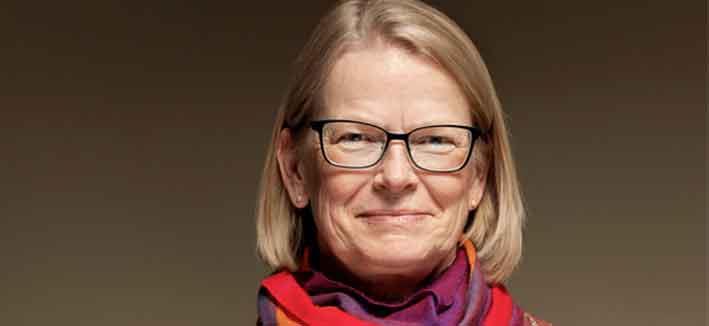Important changes to legislation in various European countries have come a long way to help in the fight against modern day slavery, Mgr. Marcelo Sanchez Sorondo said while addressing a conference on the issue.
The conference focuses on sharing models and best practices to end modern day slavery and restore dignity to its victims. It has been organised by the Amersi Foundation, the Pontifical Academy of Sciences, Vatican City and the President’s Foundation for the Wellbeing of Society.
Sanchez Sorondo has been leading Pope Francis’ anti-slavery efforts since 2013. In 1998 St John Paul II appointed him as Chancellor of the Pontifical Academies of Sciences and Social Sciences. He had been ordained as a priest back in 1968, and lectures in the history of philosophy and was later made dean of the Faculty of Philosophy of the Lateran University in Rome.
In his address, Sanchez Sorondo highlighted legislative changes made in Sweden that criminalised consumers of sex workers. Since an extensive part of modern day slavery takes place in the form of sex trafficking, the thinking here is that it was slow demand and make it less profitable for traffickers to traffic women and children.
He said that it is appropriate for the conference to take place in Malta, because it is the location of where St Paul had been shipwrecked on his way to Rome to face charges.
“This [in Malta] is where he [St Paul] gave the first message of freedom and dignity of the human person. It was here, before reaching Rome that he gave this first message that came directly from Christ. For this, we need to thank God”, said Sanchez Sorondo.
He added that “we need to go from indignation and move forward to act in the eradication of all forms of slavery and trafficking. We are here not only to explain about the facts, and the extension of the facts - which are terrible, but to highlight that this is not human. We are here to pursue different models and good practices to resolve this problem.”
“The Commission worked in a very strong way in this regard, especially in Nigeria. This is a model we can apply to all countries. The other person here is the Chancellor of Sweden who is the person who created the idea that we know about. It was 20 years ago in Sweden that for the first time in our Christian history we criminalised consumers of what is in effect slavery. This is a great solution that every country has copied.”
He also praised France for its work, especially the decriminalisation of victims of sex trafficking which has left unprecedented levels of protection for those victims.
Sanchez Sorondo turned to the ‘complicated’ issue of organ trafficking that also leads to slavery.
“For the first time, the Vatican organised a very important meeting with representatives of people from various countries, where we obtained a statement saying that this [organ trafficking] is a crime against humanity.

The Swedish judge who spearheaded the legislative change on consumers of prostitution, Chancellor of Justice Anna Skarhed also addressed the conference.
She refuted any argument that sex work should be regulated and outlawed, citing facts and statistics that an increase in prostitution is always led by an increase in human trafficking and therefore slavery.
After a long career as a judge in various courts around Sweden, as well as a career in the Ministry of Justice and was eventually appointed to the Swedish Supreme Court.
In her address, Skarhed said that modern day slavery is also tied to sustainable development and climate change. This ties in with the knowledge that instability, insecurity and poverty are main drivers of modern day slavery.
It creates vulnerable people that are more easily exploited by criminals.
While explaining the thinking behind legislative changes to sex workers, Skarhed said the focus is on demand, on the buyer. This would have an indirect of supply because of the deterrent on demand for prostutition.
“I may remind you that this is not a moral issue, but a question of human rights.”.
In 1999, Sweden was the first country to adopt what is known today as The Nordic Model approach to prostitution. This set of laws and polices penalizes the demand for commercial sex wile decriminalising individuals in prostitution and providing them with social services, including help for those who wish to exit prostitution. The Nordic Model has to main goals: to curb the demand for commercial sex that fuels sex trafficking, and promote equality between men and women. In 2008, as part of an action plan against prostitution and human trafficking for sexual purposes, the Swedish government appointed a special committee of inquiry, known as the Committee of Inquiry to evaluate the ban against the Purchase of Sexual Services.
Skarhed had presented a report which showed that the law had positive effects.
In 2016 she participated in the Judges’ Summit on human trafficking and organisex crime, held at the pontifical academy of social sciences in the Vatican, with the participation of Pope Francis.